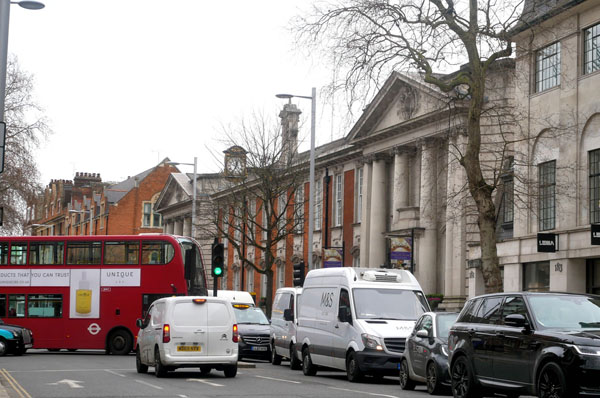Returning to a car-dominated transport network will put climate targets and a ‘fair’ economic recovery at risk, transport campaigners have warned after a survey revealed that cars could continue to be the preferred mode for most journeys.
The survey, carried at last month, asked people which modes of transport they used before the pandemic for various activities and which they intend to use once all restrictions are lifted.
According to the Campaign for Better Transport (CfBT), it showed adults in the UK largely expecting to choose to travel as they did before the pandemic, with private cars remaining the dominant form of transport for around half of trips for shopping (50% vs 49% before the pandemic), leisure (54% vs 52%) and personal matters (53% vs 52%).
The proportion of people who intend to use public transport once restrictions are lifted is very similar to the proportion who used it before the pandemic, although campaigners said this is likely to be affected by the kinds of journeys people need to make in the future.
In fact, the survey suggested that commuting will be cut overall by a tendency for fewer employees to work entirely from their place of work. Two-thirds (65%) of UK adults in employment did so before the pandemic, whereas just half (53%) plan to when restrictions begin to ease.

Traffic in Central London, March 2021
CfBT chief executive Paul Tuohy said: ‘Cars are the main contributor to carbon emissions and lethal air pollution, so returning to a car-dominated transport network is simply not an option post-Covid.
‘Our research highlights that unless the Government does more to promote public transport and encourage its use, we cannot hope to reduce harmful emissions or build back in a way that is fair and sustainable.’
CfBT said less crowded services, cheaper tickets and better routes ‘came top of the public’s wish list to encourage increased use of public transport post-pandemic’.
It pointed out that there are no flexible season tickets for people commuting part-time and said the lack of affordable ticketing options for part-time commuters could result in an increase in car use or a delay to the economic recovery.
Robert Nisbet, director of nations and regions at the Rail Delivery Group (RDG), which represents the industry, said it is ‘working with government on new flexible tickets for commuters’. But he added: ‘We want the underpinnings of the system to be rewired so we can deliver the simpler, more flexible and better-value fares which passengers increasingly want.’
The industry and the Government appear to have reached an impasse over flexible tickets.
As Transport Network has reported, the Government has claimed that it is waiting for proposals from rail firms, despite a minister telling MPs that such proposals were submitted last summer.
The RDG told Transport Network that progress is being made behind the scenes.
Register now for full access
Register just once to get unrestricted, real-time coverage of the issues and challenges facing UK transport and highways engineers.
Full website content includes the latest news, exclusive commentary from leading industry figures and detailed topical analysis of the highways, transportation, environment and place-shaping sectors.
Use the link below to register your details for full, free access.
Already a registered? Login